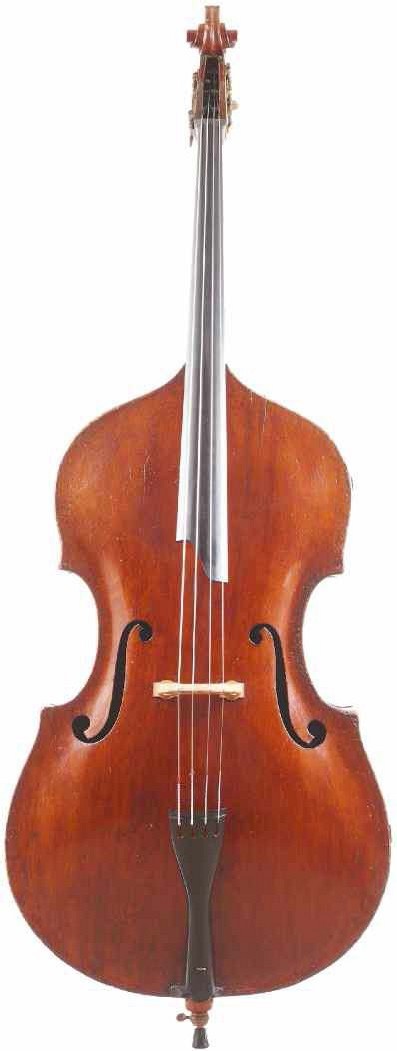
William Tarr made this double bass in around 1826. He had yet to develop his characterisic style of soundhole and outline
The English school of double bass making is widely known to players and luthiers alike, with most major orchestras likely to have an English double bass among their ranks. But to claim that there is any definitive example of the English double bass would be to misjudge entirely the nature of making in this country. Indeed, when looking at instruments produced during the heyday of the industry in England we see not one homogeneous school of production but a great number of regional variations focused around the main population centres. While the London makers are arguably the best known, there were a number of makers of considerable importance in the northern city of Manchester, including William Tarr, James Cole and James William Briggs, who pursued a distinctly different style from that of their southern neighbours.
Manchester came to importance at a relatively late period in England’s history. First established as a Roman settlement in around 79AD, it remained a small town until the turn of the 19th century, when the Industrial Revolution brought sweeping changes.The textiles industry prevalent in the surrounding county of Lancashire experienced a boom owing to advances in manufacturing technology, and this led to a rapid increase in population as the town became a centre of trade and commerce. Manchester was granted city status in 1853 and continued to grow until after the Second World War, when the UK began to deindustrialise.